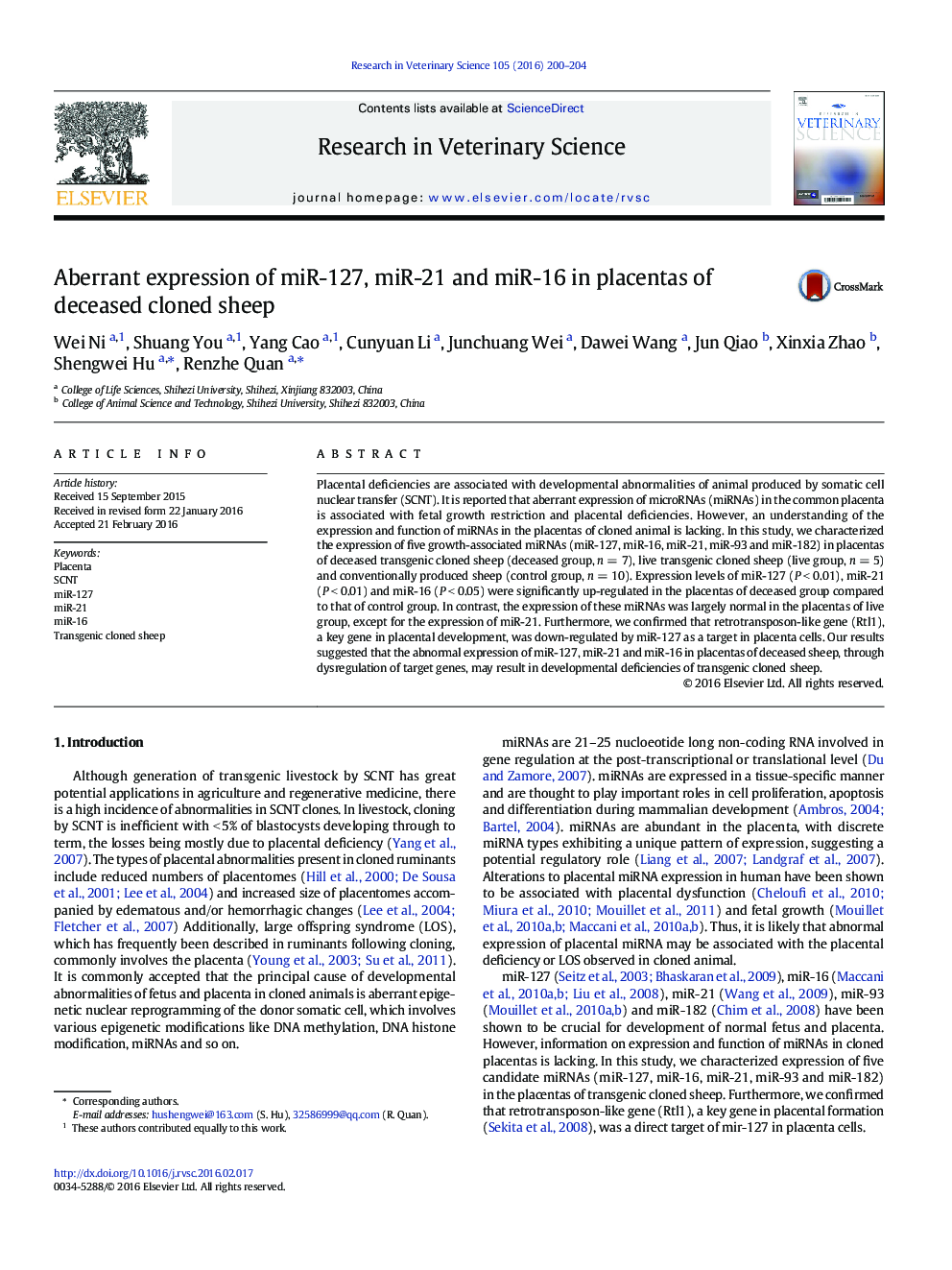| Article ID | Journal | Published Year | Pages | File Type |
|---|---|---|---|---|
| 5794373 | Research in Veterinary Science | 2016 | 5 Pages |
â¢Expression of miRNAs was upregulated in placenta of deceased cloned sheep.â¢Rtl1 was down-regulated by miR-127 as a target in placenta cells.â¢Abnormal expression of miRNAs may result in deficiencies of cloned placenta.
Placental deficiencies are associated with developmental abnormalities of animal produced by somatic cell nuclear transfer (SCNT). It is reported that aberrant expression of microRNAs (miRNAs) in the common placenta is associated with fetal growth restriction and placental deficiencies. However, an understanding of the expression and function of miRNAs in the placentas of cloned animal is lacking. In this study, we characterized the expression of five growth-associated miRNAs (miR-127, miR-16, miR-21, miR-93 and miR-182) in placentas of deceased transgenic cloned sheep (deceased group, n = 7), live transgenic cloned sheep (live group, n = 5) and conventionally produced sheep (control group, n = 10). Expression levels of miR-127 (P < 0.01), miR-21 (P < 0.01) and miR-16 (P < 0.05) were significantly up-regulated in the placentas of deceased group compared to that of control group. In contrast, the expression of these miRNAs was largely normal in the placentas of live group, except for the expression of miR-21. Furthermore, we confirmed that retrotransposon-like gene (Rtl1), a key gene in placental development, was down-regulated by miR-127 as a target in placenta cells. Our results suggested that the abnormal expression of miR-127, miR-21 and miR-16 in placentas of deceased sheep, through dysregulation of target genes, may result in developmental deficiencies of transgenic cloned sheep.
